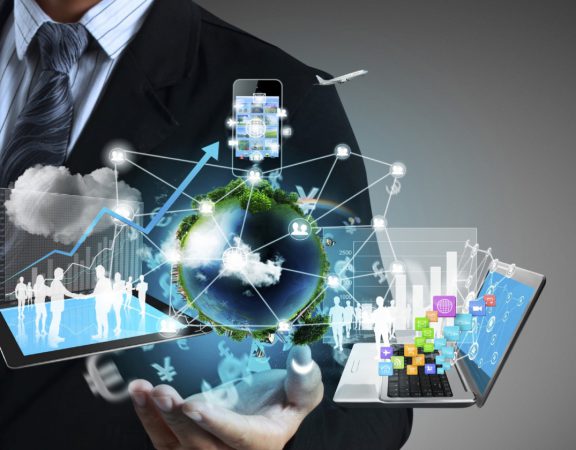

10 New Technologies
There’s always something new on the horizon, and we can’t help but wait and wonder what technological marvels are coming next.
These technologies all have staying power. They will affect the economy and our politics, improve medicine, or influence our culture. Some are unfolding now; others will take a decade or more to develop. But you should know about all of them right now.
- Robot Chefs
If we ignore the part about robots dooming us all by forcing us into unemployment, the idea of a robot kitchen assistant is a dream come true. A year and a half ago, Moley Robotics said their robot hands would be able to cook 2000 meals at the push of a button. - Machine Learning
Machine learning has taken some massive strides forward in the past few years, even emerging to assist and enhance Google’s core search engine algorithm. But again, we’ve only seen it in a limited range of applications. It is expected to see machine learning updates emerge across the board, entering almost any type of consumer application you can think of, from offering better recommended products based on prior purchase history to gradually improving the user experience of an analytics app. - Fully waterproof iPhones
Though the iPhone 7 is partially waterproof, fully waterproof iPhones are not yet widely available. With both the technology and the consumer demand available, this year will hopefully become the year that you can start keeping your phone in your back pocket again. - Everything On-Demand Thanks to brands like Uber, people are getting used to have everything on demand via phone apps.This will develop even further. We have thousands of apps available to us to get rides, food deliveries, and even a place to stay for the night, but soon we’ll see this evolve into even stranger territory.

- Instant charging
The technology to improve batteries has been around for a while, with StoreDot unveiling their prototype fast-charging battery way back in 2014. Whilst battery life has been threatened by ever-slimming phones, there’s no reason that instantly-chargeable batteries shouldn’t be on the market soon. - AR and VR
We’ve already seen some major steps forward for augmented reality (AR) and virtual reality (VR) technology in the past years. Oculus Rift was released, to positive reception, and thousands of VR apps and games followed. We also saw Pokémon Go, an AR game, explode with over 100 million downloads. The market is ready for AR and VR, and we’ve already got some early-stage devices and tech for these applications. Once they arrive, you’ll need to be ready for AR and VR versions of practically everything. - Humanized Big Data
Big data has been a big topic for the past years or so, when it started making headlines as a buzzword. The idea is that mass quantities of gathered data—which we now have access to—can help us in everything from planning better medical treatments to executing better marketing campaigns. - Blockchain
Blockchain has the potential to change the way we buy and sell, interact with government and verify the authenticity of everything from property titles to organic vegetables.
It combines the openness of the Internet with the security of cryptography to give everyone a faster, safer way to verify key information and establish trust. - Samsung’s satellite idea
Consumer electronics company Samsung has a big idea for stretching the interwebs around the globe — using satellites. In 2015, the company proposed a global network of 4,600 satellites floating in low-Earth orbit that could beam up to 1 zettabyte (1 trillion gigabytes) a month. - IoT and Smart Home Tech
We’ve been hearing about the revolution of the Internet-of-Things (IoT) and resulting interconnectedness of smart home technology for years. So what’s the holdup? Why aren’t we all living in smart, connected homes by now? Part of the problem is too much competition, with not enough collaboration—there are tons of individual appliances and apps on the market, but few solutions to tie everything together into a single, seamless user experience. Now that bigger companies already well-versed in uniform user experiences (like Google, Amazon, and Apple) are getting involved, it is expected to see some major advancements on this front in the coming year.



